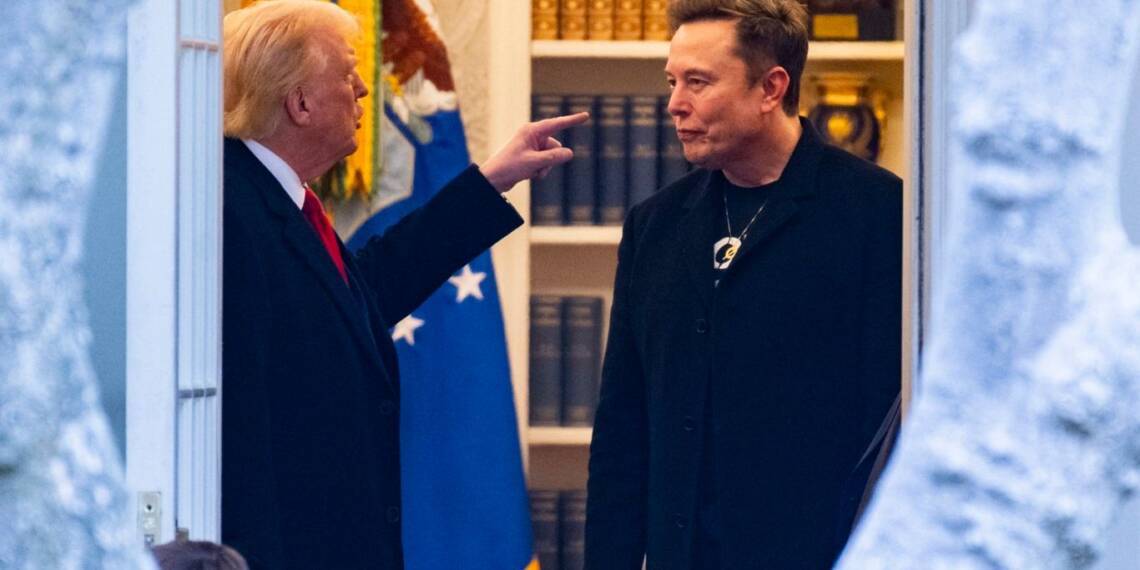Reports are rife that Elon Musk is expected to step down from his role in the Department of Government Efficiency (DOGE) in the coming weeks, as his term as a special government employee nears its legal limit. While the White House insists his departure is proceeding as planned, reports suggest that political considerations may also be influencing the timeline.
During a press briefing on Monday, President Donald Trump acknowledged that Musk’s time in the administration was drawing to a close. “He’s got a big company to run … at some point he’s going to be going back,” Trump told reporters. “I’d keep him as long as I could keep him,” he added, reinforcing the notion that Musk’s exit is imminent.
Despite reports indicating that Musk’s departure is tied to internal disagreements, both the White House and Musk himself have pushed back against the claims. A Politico report, citing three anonymous administration insiders, suggested that the billionaire would soon be stepping down, partially due to growing frustrations among Trump’s allies over Musk’s unpredictability. However, the White House has dismissed this characterization.
White House Press Secretary Karoline Leavitt took to social media to reject the Politico report, calling it “garbage.” “Elon Musk and President Trump have both publicly stated that Elon will depart from public service as a special government employee when his incredible work at DOGE is complete,” Leavitt wrote on X, formerly Twitter.
Musk also labelled the report as “fake news,” indicating that his departure remains in line with the legal constraints placed on his appointment rather than any sudden political fallout.
Political Tensions Loom
While Musk has been an outspoken advocate for Trump’s administration and its policies, there have been indications that some within the president’s circle have grown wary of his influence. According to Politico, frustration has mounted after Musk’s endorsement of a conservative judicial candidate failed to deliver a victory in a recent Wisconsin Supreme Court race. Some Trump allies now perceive him as a political liability, though the White House maintains that Musk’s contributions are still valued.
Despite these reported tensions, administration officials assert that Musk’s role was always meant to be temporary. His tenure as a special government employee is legally capped at 130 days, and with his appointment beginning on Inauguration Day, his term is expected to end by late May. Under U.S. ethics laws, individuals serving under this designation cannot exceed this timeframe within a single year.
Also Read: Trump’s global warning for Contractors: Drop diversity programs or face complete Cuts
Musk’s Focus on Efficiency and Cost-Cutting
Since taking on the role at DOGE, Musk has focused on streamlining government operations and reducing bureaucratic inefficiencies. His efforts have been met with both praise and scepticism. Supporters argue that Musk’s innovative approach has brought much-needed reform, while critics question whether his policies will yield lasting improvements.
In a recent interview with Fox News, Musk expressed confidence in the progress made under his leadership. “I think we will have accomplished most of the work required to reduce the deficit by $1 trillion within that time frame,” he said, signaling that his objectives were close to being met.
A Transition in the Trump-Musk Dynamic?
Musk’s upcoming exit signals a shift in his relationship with the Trump administration. Just a month ago, insiders speculated that efforts were underway to extend Musk’s influence within the government beyond the 130-day limit. However, as his tenure comes to a close, it appears both Trump and Musk have accepted that his role was always meant to be temporary.
While Musk is expected to return full-time to his business ventures, he is likely to remain a vocal supporter of Trump’s agenda. Whether his government experience will influence his future business or political involvement remains to be seen, but for now, his time in Washington may be approaching its final chapter.








